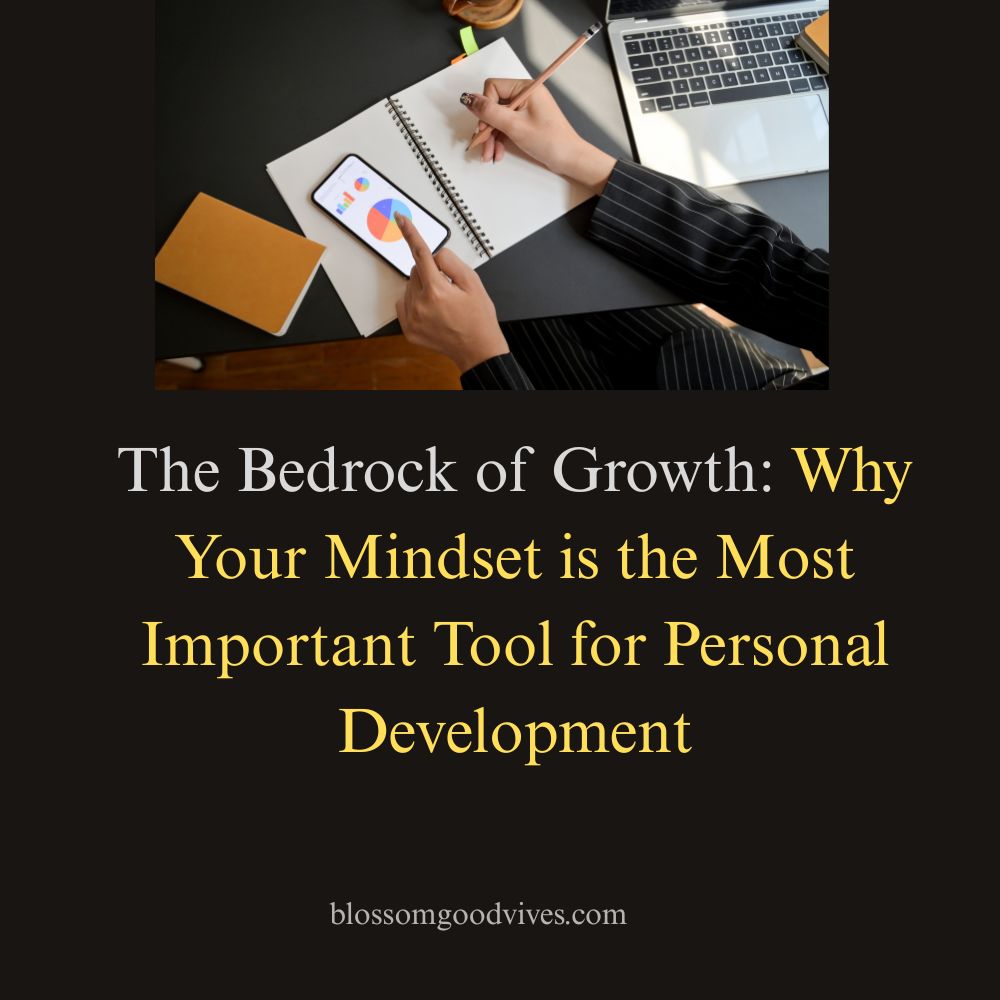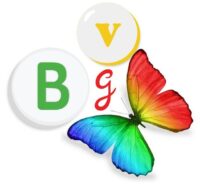
For best personal development, we often focus on the external tools: the perfect planner, the right app, the most efficient productivity hack. Yet, the single most powerful factor determining whether we succeed or fail in our growth journey is internal, invisible, and often overlooked: our mindset.
Your mindset is the lens through which you view yourself and the world. It’s the internal narrative that interprets challenges, setbacks, and efforts. It is, quite simply, the operating system for your life. Before any habit can be built or any goal achieved, the right mindset must be in place to support it.
The Foundational Duality: Fixed vs. Growth Mindset
The groundbreaking work of psychologist Carol Dweck provides the essential framework for understanding this concept. She identified two core mindsets:
The Fixed Mindset: The belief that our abilities, intelligence, and talents are static, innate traits. We are born with a certain amount, and that’s that.
Internal Monologue: “I’m just not good at this.” “I’m a natural-born leader.” “If I have to work hard at it, I must not be smart.”
Behavior: Avoids challenges for fear of failure (which would reveal a lack of ability). Gives up easily in the face of obstacles. Sees effort as fruitless. Ignores useful negative feedback. Feels threatened by the success of others.
The Growth Mindset: The belief that our abilities and intelligence can be developed through dedication, hard work, and learning.
Internal Monologue: “I can’t do this yet.” “What can I learn from this mistake?” “My effort and strategy are the path to mastery.”
Behavior: Embraces challenges as opportunities to learn. Persists in the face of setbacks. Sees effort as the necessary path to mastery. Learns from criticism. Finds lessons and inspiration in the success of others.
The implications are profound. A person with a fixed mindset is constrained by their own self-perception. A person with a growth mindset is liberated by the belief in their own potential. For personal development, adopting a growth mindset is not just helpful; it is non-negotiable.
Cultivating a Growth Mindset: The Practical Shift
The excellent news is that a growth mindset is not a fixed trait itself—it can be cultivated. It requires conscious effort to rewire deeply ingrained thought patterns.
1. Embrace the Power of “Yet”:
This is perhaps the most powerful word in the growth mindset vocabulary. It transforms a definitive failure into a temporary state of learning.
Fixed: “I don’t understand this.”
Growth: “I don’t understand this yet.”
Fixed: “I can’t play the guitar.”
Growth: “I can’t play the guitar yet and I am learning”
2. Redefine Failure and Challenge:
Shift your perspective on obstacles. They are not stop signs; they are the very terrain on which growth happens.
See failure as data, not destiny. Every misstep provides information on what doesn’t work, bringing you closer to a solution.
Welcome challenges. If a task feels easy, you’re not growing. The feeling of being stretched and slightly uncomfortable is a signal that you are expanding your capabilities.
3. Process over Outcome:
While goals are important, a growth mindset focuses on the process of improvement rather than a fixed endpoint.
Instead of “I must get an A,” focus on “I will study for 45 minutes every day and ask questions when I’m confused.”
Praise effort, strategy, and persistence, not just innate talent. This applies to how you talk to yourself and others.
4. Analyze and Learn from Setbacks:
When you become failure, engage in a constructive thoughts and task without self-judgment.
Ask: What went wrong? What factor was within my control? What one thing can I try differently next time? This transforms a negative event into a learning opportunity.
Beyond Growth: Other Key Mindsets for Development
While the growth mindset is the cornerstone, other supportive mindsets are crucial for a holistic approach.
The Abundance Mindset vs. Scarcity Mindset: Coined by Stephen Covey, this is the belief that there are enough resources and successes to share with others. It fosters collaboration, celebration of others’ wins, and openness, as opposed to a scarcity mindset rooted in jealousy, competition, and fear.
The Positive Mindset: This is not about Pollyannaish denial of reality. It is the practiced skill of focusing on solutions rather than problems, on opportunities within difficulties, and on gratitude. It is a choice to direct your attention to what empowers you rather than what drains you.
The Curious Mindset: Approaching life with a sense of wonder and a desire to learn. Asking “Why?” and “How?” constantly. This mindset makes the journey of personal development enjoyable and endlessly fascinating.
The Compound Effect of a Empowered Mindset
Your mindset is the soil in which the seeds of personal development are planted. No matter how good the seeds (goals, plans, skills), if the soil is barren (fixed, negative, scarce), nothing will grow.
When you consciously cultivate a growth-oriented, abundant, and positive mindset, you create a fertile internal environment where:
Resilience is built: Setbacks become stepping stones, not roadblocks.
Learning is continuous: Every experience becomes a source of feedback and growth.
Courage is mustered: You become more willing to step outside your comfort zone.
The journey becomes joyful: The process of growth itself becomes rewarding, not just the destination.
The First and Most Important Step
Before you buy another course or download another productivity app, invest time in the most important development work you will ever do: auditing and upgrading your mindset. Listen to your self-talk. Challenge your assumptions about your own abilities. Embrace the “yet.”
Your mindset is the foundation upon which every other aspect of your personal development is built. Make it strong, make it growth-oriented, and you will have equipped yourself with the only tool you truly need to build the life you desire.
References & Further Reading:
Dweck, C. S. (2006). Mindset: The New Psychology of Success. Random House.
The seminal book that introduced the concepts of Fixed and Growth Mindset to a global audience.
Covey, S. R. (1989). The 7 Habits of Highly Effective People. Free Press.
*Explores the Abundance Mindset (Habit 4: Think Win-Win) and the principle of continuous improvement.*
Clear, J. (2018). Atomic Habits. Avery.
While focused on habits, the book deeply emphasizes the identity shift (“I am the type of person who…”) that is central to a growth mindset.
Brown, B. (2012). Daring Greatly: How the Courage to Be Vulnerable Transforms the Way We Live, Love, Parent, and Lead. Gotham Books.
Explores how vulnerability and the courage to face failure are essential for wholehearted living and growth.
